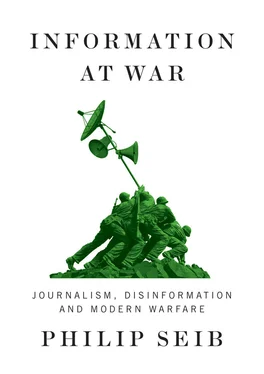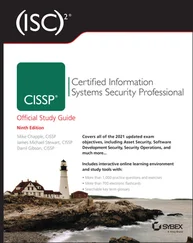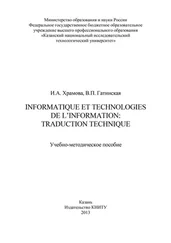What would Homer have thought about all this? How would he have told his audiences about our contemporary manifestations of rage – wars with many weapons, including information? I refer to Homer’s work in several places in this book because I consider him to be a prime ancestor of those who gather and disseminate information at war.
In his book Why Homer Matters , Adam Nicolson stated: “Homer knows about the reality of suffering but never thinks of a world without conflict … . We might long for peace, but we live in war.” 33Civilization will always be plagued by conflict of one kind or another, including those that use words and images as well as bullets. Information at war will be part of that.
1 1 Homer, The Iliad, translated by Robert Fagles (London: Penguin, 1998), 77.
2 2 Journalism, “Fake News,” and Disinformation: A Handbook for Journalism Education and Training, UNESCO, 2020, https://en.unesco.org/node/295873.
3 3 Committee to Protect Journalists, https://cpj.org/data/imprisoned/2019/?status=Imprisoned&start_year=2019&end_year=2019&group_by=location.
4 4 See Stanley Cloud and Lynne Olson, The Murrow Boys (Boston: Houghton Mifflin, 1996).
5 5 Melissa A. Wall, “Blogs over Baghdad: A New Genre of War Reporting,” in Ralph D. Berenger (ed.), Cybermedia Go to War (Spokane, WA: Marquette Books, 2006), 297–8.
6 6 Henry Kissinger, Does America Need a Foreign Policy? Toward a Diplomacy for the 21st Century (New York: Simon & Schuster, 2001), 284.
7 7 See Peter Braestrup, Big Story (abridged version: Novato, CA: Presidio Press, 1994).
8 8 Dominique Moisi, “The Clash of Emotions,” Foreign Affairs 86, no. 1 (January–February 2007), 8.
9 9 Kate Bulkley, “The Rise of Citizen Journalism,” Guardian, June 10, 2012.
10 10 Philip Seib, Headline Diplomacy: How News Coverage Affects Foreign Policy (Westport, CT: Praeger, 1997), 1–13.
11 11 See Laura J. Ahlstrom and Franklin G. Mixon, Jr. (eds.), War Movies and Economics: Lessons from Hollywood’s Adaptations of Military Conflict (London: Routledge, 2020).
12 12 Fiona Macdonald, “Mrs. Miniver: The Film that Goebbels Feared,” BBC, February 9, 2015, www.bbc.com/culture/article/2150209-the-film-that-goebbels-feared.
13 13 Marvin Kalb, Imperial Gamble: Putin, Ukraine, and the New Cold War (Washington: Brookings Institution, 2015), 236.
14 14 www.medialit.org/media-literacy-definition-and-more.
15 15 https://americancentury.omeka.wlu.edu/files/original/60e94905a0e02050a5b78f10b1b02b07.jpg.
16 16 See William Prochnau, Once Upon a Distant War (New York: Times Books, 1995).
17 17 Philip Knightley, “The Falklands: How Britannia Ruled the News,” Columbia Journalism Review, September/October 1982, 52.
18 18 Bob Woodward, The Commanders (New York: Pocket Books, 1992), 364.
19 19 See Philip Seib, Beyond the Front Lines: How the News Media Cover a World Shaped by War (New York: Palgrave Macmillan, 2004), 69–86.
20 20 Julie Salamon, “New Tools Make Coverage More Instant but Coverage No Simpler,” New York Times, April 6, 2003.
21 21 Seib, Beyond the Front Lines, 58.
22 22 Seib, Beyond the Front Lines, 78–9. Mark Jurkowitz, “Americans Want Facts and Flags,” Boston Globe, July 14, 2003, http://forums.lukpac.org/viewtopic.php?t=230.
23 23 www.bbc.co.uk/send/u16904890.
24 24 Lilie Chouliaraki, “Citizen Voice in War and Conflict Reporting,” in Piers Robinson, Philip Seib, and Romy Froehlich (eds.), Routledge Handbook of Media, Conflict and Security (London: Routledge, 2017), 174–5.
25 25 See Martin Bell, In Harm’s Way (London: Penguin, 1996).
26 26 See Abdel Bari Atwan, Islamic State: The Digital Caliphate (Oakland: University of California Press, 2015).
27 27 www.pewresearch.org/internet/2018/11/16/algorithms-in-action-the-content-people-see-on-social-media.
28 28 See Henry Hemming, Agents of Influence: A British Campaign, a Canadian Spy, and the Secret Plot to Bring America into World War II (New York: PublicAffairs, 2019).
29 29 See Thomas Rid, Active Measures: The Secret History of Disinformation and Political Warfare (New York: Farrar, Straus and Giroux, 2020).
30 30 Lawrence Freedman, Ukraine and the Art of Strategy (New York: Oxford University Press, 2019), 140.
31 31 Julian E. Barnes, “Cyber Command Operation Took Down Russian Troll Farm for Midterm Elections,” New York Times, February 26, 2019.
32 32 Jens Stoltenberg, “NATO Will Defend Itself,” NATO, August 29, 2019, www.nato.int/cps/en/natohq/news_168435.htm?selectedLocale=en.
33 33 Adam Nicolson, Why Homer Matters (New York: Henry Holt, 2014), 181.
Information matters. How most people shape their attitudes about a war – support or opposition – is determined largely by the information they receive about the particular conflict, as well as by information they have acquired over time about wars of the past and international affairs generally. Whether their perspective on the conflict primarily reflects sadness or anger or jubilation or nonchalance, whether they decide to turn away or desire to learn more, their response might depend on the vividness, thoroughness, and eloquence with which the information that they receive is presented.
Once individuals have digested information and developed a position on the war (varying in firmness from person to person), they might want to do something about what they have learned. If they choose to act, they must decide what that should entail. The information might stir passionate support or opposition, which could lead citizens into the streets to demonstrate their feelings. Or it could shape how they will vote in the next election. The range of options is wide. Once received, information does not simply vanish; it lingers in the mind, with effects of variable significance over time. 1
Sources of information are diverse. The news media and governments shape messages according to their own interests and standards. Additional contributors might include family, friends, neighbors, co-workers, and others who populate one’s social milieu. 2Conversations at the dinner table, over the backyard fence, or at the workplace water cooler are building blocks of opinion, as are an individual’s religious and ethical beliefs and life experiences. Depending on its quality and source, information can make war real even to those physically distant from the fighting. It can perhaps motivate them to learn more and decide about taking particular action.
A nation’s collective experience of war can affect receptivity to information about conflict. For many Americans, more than the citizens of any other major power, war is something of an abstraction, a remote phenomenon that has rarely touched the homeland. With a few exceptions – such as the 9/11 attacks in 2001 – the last time a foreign adversary brought combat to the American mainland was during the War of 1812. In terms of casualties, the most devastating conflict for Americans was their own civil war, which ended in 1865.
Many other countries have not been as fortunate in escaping war and the suffering that accompanies it. The following events took place less than a century ago, all within a short span of time: the rape of Nanking, the London Blitz, the battle of Stalingrad, the Holocaust, and the obliteration of Hiroshima and Nagasaki. They are among the countless examples of humankind’s capacity to destroy. Beyond the “big” wars that have occupied the world’s stage, episodes of intrastate conflict, genocide, ethnic cleansing, and terrorism have taken place with such frequency that they sometimes escape the world’s attention. That should not happen. When governments and publics fail to acknowledge and respond to any such bloodletting, the moral fabric of humanity is damaged. News media, civil society institutions, and even individuals have responsibilities as sentinels of conscience. 3Disseminating information, whether by a global television network or in an individual’s tweet, can be effective in stirring consideration of the moral and practical implications of conflict.
Читать дальше












